Photos and video shared online by residents showed terrifying scenes as fast-moving rivers of mud and water swept through towns, while images from AFP showed the aftermath of the devastating floods as emergency crews searched for the missing and helped clear up damage on Friday.
UPDATE: Death toll rises to 10 in flash floods in central Italy
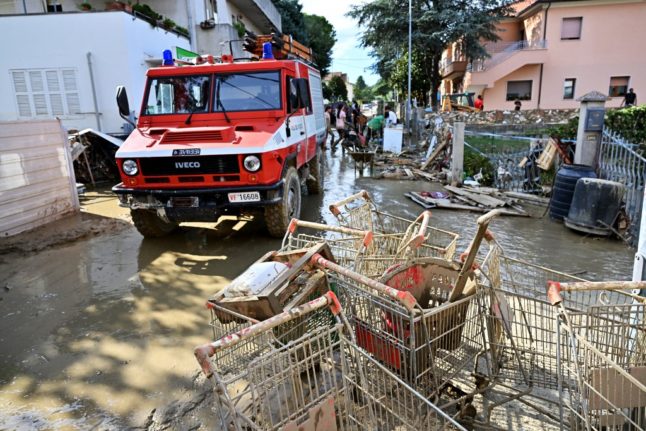
“It was scary because it happened so fast. It sounded like a waterfall,” said Laura Marinelli, 33, who grabbed her 18-month-old daughter and ran to neighbours upstairs as her ground-floor home near Ostra began to flood.
The waters kept rising and they climbed onto the roof to call for help.
E anche oggi l’Italia piange delle vite a causa di eventi climatici estremi.
E dire che tra qualche settimana gli italiani consegneranno il paese a chi il #cambiamentoclimatico l’ha sempre rinnegato ignorando qualsiasi soluzione o prevenzione e schernendo chi lo combatte. #marche pic.twitter.com/iDjlyIjt0y— Ignazio Corrao (@ignaziocorrao) September 16, 2022
“We’ve lost everything, all the photos, all the letters you can’t replace,” she told AFP, plastic pink toys floating in the submerged garden nearby.
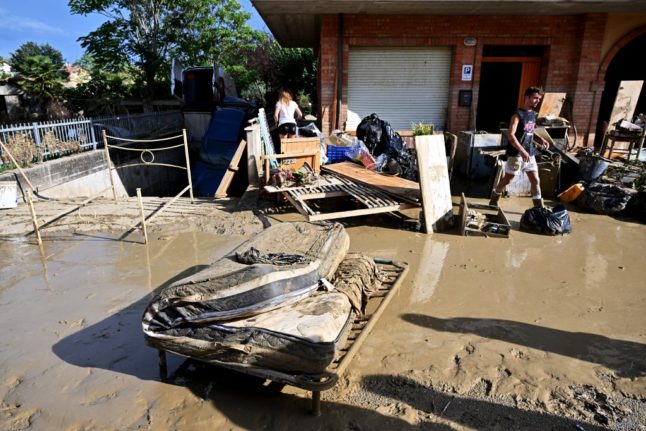
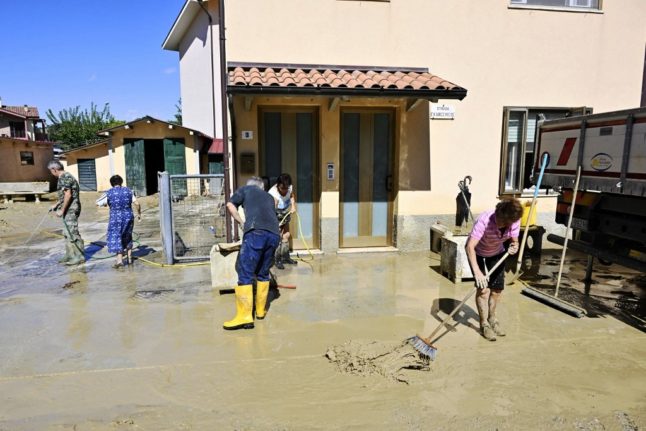
Some of the worst damage was seen in the town of Senigallia, while small towns surrounding the tourist town of Urbino were also badly affected.
The fire brigade said it had rescued dozens of people overnight “who took refuge on roofs and in trees” during the floods.
#Cantiano
La popolazione lavora incessantemente per cercare di limitare gli ingenti danni causati dalle piogge della notte scorsa. #Marche #Alluvione pic.twitter.com/COszGZOXZJ— Yara (@y_nardi) September 16, 2022
The wave of bad weather that hit the area “was not expected at these levels, we had no alert in place. The flooding was sudden,” Marche regional councilor for civil protection Stefano Aguzzi told Ansa.
READ ALSO: Italy records ‘five times’ more extreme weather events in ten years
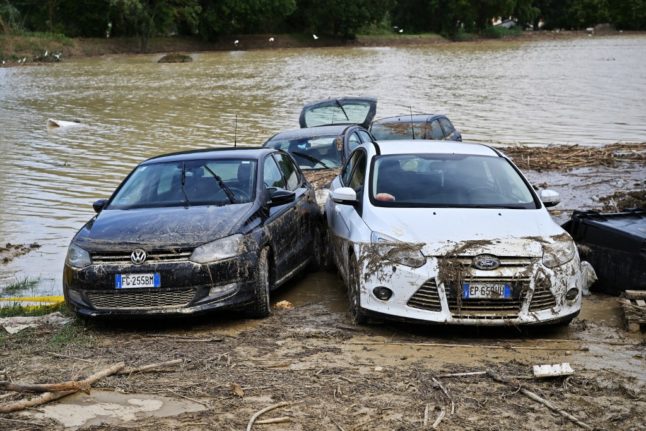
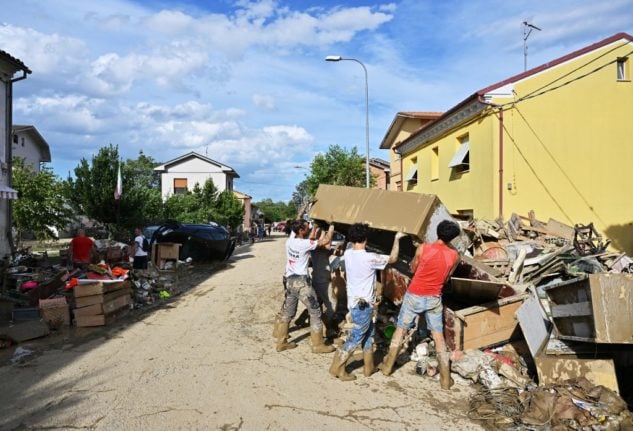
People clean a flooded street in Pianello di Ostra, Ancona. Photo by Alberto PIZZOLI / AFP
“There was no time to intervene. There are people who may have been on the street or who had gone out not realising the danger.”
Several areas in Ancona were without electricity or telephone connections. Schools were closed on Friday in the affected areas.
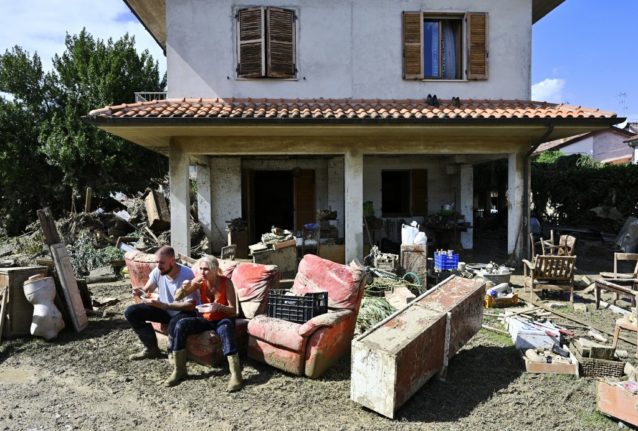
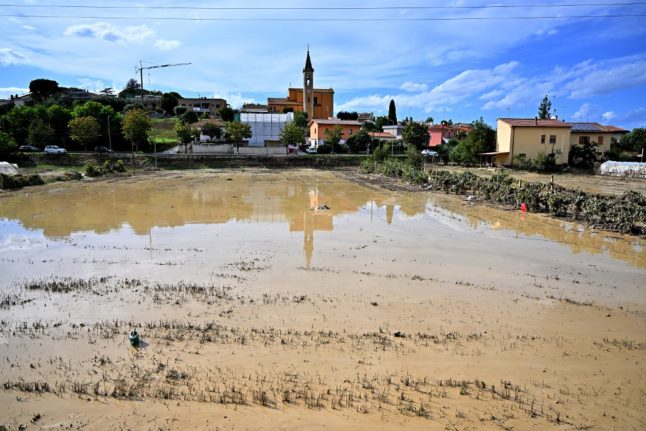

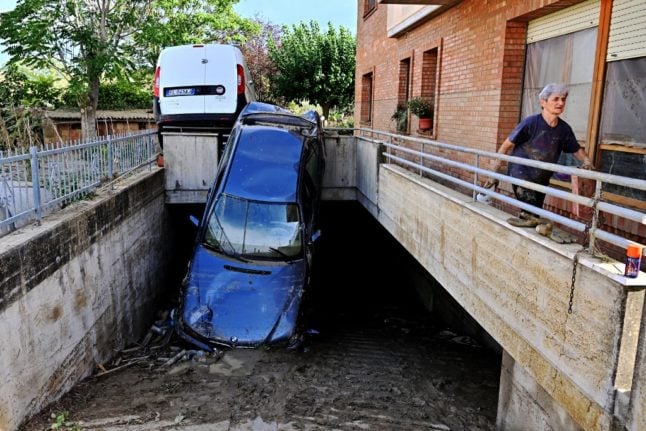
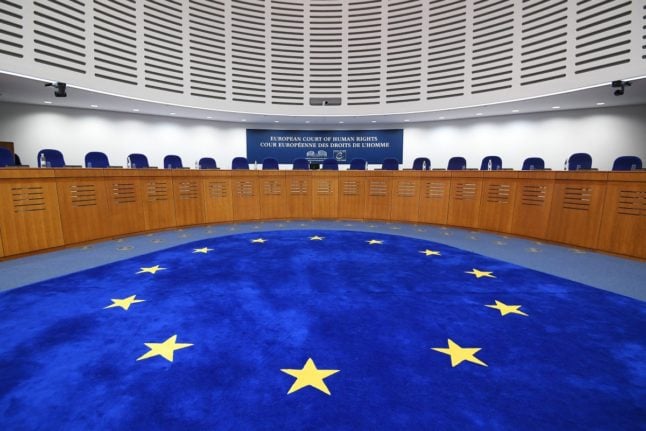
 Please whitelist us to continue reading.
Please whitelist us to continue reading.
Member comments